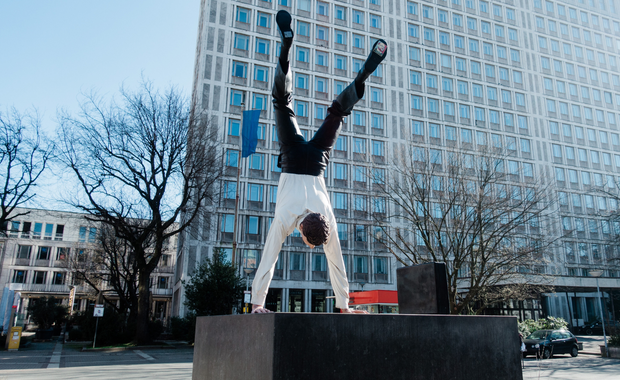Change Your Mindset
How to Fast Track Your Career for Guaranteed Success
Significance of soft skills for millennials in today’s world

Soft skills are known by different names globally. People are often confused with communication skills, emotional intelligence, life skills, and people skills to name a few. Additionally, they are known by different names in some countries. But basically, soft skills are the skills, abilities, and traits of personality, attitude, and behavior. They make a difference in personal, professional, and social life. They help people grab employment opportunities and stay in a job for a longer duration with pleasing and polite behavior.
Soft Skills
The skills and abilities essential for students who pass out from educational institutions to get adjusted to the industrial front that is more especially connected to communication skills are known as soft skills. These are known as social skills, people skills, and emotional intelligence.
These are also known as life skills. Soft skills are all about anything other than domain knowledge. They are also about interpersonal relations, the attitude to develop as an individual, and, above all, the personal grooming to face challenges in day-to-day life in the corporate world.
With the changing business environment, the competition for job acquisition and job sustainability is intensifying. To get an edge over others in the competitive market, students must complement their hard skills with soft skills to exhibit their real potential. While hard skills are academic skills, knowledge, experience, and level of expertise, soft skills are self-developed, interactive, communication, human, and transferable skills.
To survive in today’s challenging global environment, most employers focus on employing, retaining, and promoting people who are dependable, resourceful, ethical, self-directed, have effective communication, willing to work and learn with a positive, right, and strong attitude.
Soft vs. Hard Skills
Soft skills are different from hard skills. Hard skills are technical skills and domain skills while soft skills are non-domain skills. Hard skills are tangible that are measurable and quantifiable while soft skills are intangible that cannot be easily measured and quantified. Hard skills are about what you speak while soft skills are about how you speak with others.
Soft skills are a polite and pleasing way of communicating with others while hard skills are what you contribute to the workplace. Soft skills complement your hard skills. Precisely, soft skills are a presentation of your hard skills in the workplace. Soft skills are interpersonal skills while hard skills are job-related skills.
If hard skills are infrastructure soft skills are superstructure. If hard skills are the foundation soft skills are the cement. A judicious blend of both hard and soft skills is essential to achieve your professional success and fast-track your career.
You can find hard skills on a resume while you can find soft skills during the employment interview. Hard skills get you an interview while soft skills help you get your employment. Hence, both hard and soft skills are essential to get a job. After joining employment, soft skills help you survive in the workplace while hard skills help you prove yourself professionally. Hence, blending both hard and skills is imperative in the workplace.
According to Anthony Robbins, there is a famous story told about Tom Watson, the founder of IBM. One of his subordinates had made a terrible mistake that had cost the company ten million dollars. He was called into Watson’s office and said, “I suppose you want my resignation.”
Watson looked at him and said, “Are you kidding? We just spent ten million dollars educating you.” Tom Watson emphasized the importance of costly corporate education with his soft skills. Similarly, one of the technicians in the Indian Air Force made a blunder resulting in the crash of military aircraft that had cost hugely with the pilot ejecting out safely with his parachute.
The technician was called into the commander’s office and the commander looked at the technician and said, “Indian Air Force invested huge money to train you in aircraft. Remember, military education is very costly.” Hence, you can understand the significance of soft skills in expressing hard skills in a positive, polite, pleasing, and polished manner.
It is easy to measure hard skills while it is hard to measure soft skills. It is easy to teach hard skills while it is hard to teach soft skills. Usually, teachers teach hard skills while trainers train soft skills. Since soft skills are behavioral skills, it requires extra efforts on the part of trainers to use various tools and techniques including interaction, role-plays, active participation, and experiential learning to bring out the desired behavioral changes in the participants.
Soft Skills for Millennials
Millennials need soft skills along with hard skills. Most millennials are busy with their smartphones with less interaction with others. Hence, they must acquire soft skills to get along with others.
The older generations had more physical interaction and developed soft skills. But the millennials must work hard to acquire soft skills the way they acquire hard skills. A proportional mix of hard and soft skills is essential to achieving professional success and a fast-track career.
Millennials are brilliant. They are updated with the latest technology and are aware of leveraging technology effectively. But most of them are addicted to technology. They associate less with others leading to social challenges because they don’t know how to get along with others. They use more of their brain than brawn because they hardly focus on physical activities leading to health challenges.
How to Acquire Soft Skills?
You can acquire soft skills by various means including observation, reading, training, experience, and practice. Soft skills training equips you with skills, abilities, and knowledge.
However, your interaction with others helps acquire soft skills greatly. Since soft skills are behavioral skills, people must learn by trial and method by using their emotional intelligence, and through flexibility and adaptability. You must be practical, realistic, and situational to acquire soft skills. Above all, you must learn from your failures to improve your behavior to jell well with others effectively.
To improve soft skills, you must develop emotional intelligence and interpersonal skills. You must observe and understand people and their behaviors. Travel to unknown destinations to understand people. Talk to them to get along with them.
Understand their cultures and behaviors. Traveling teaches tolerance and improves soft skills. When you travel to unknown destinations and communicate in a non-native language, you will be able to improve your soft skills effectively.
Final Thoughts
The professional world of learning and development has undergone tremendous change in the 21st century. Gone are the days when all sectors underscored technical skills alone. Currently, there is a change in the mindset of companies to highlight hard and soft skills. Companies search for a perfect blend of both soft and hard skills among employees to deliver goods and services effectively to their clients. To conclude, both hard and soft skills are essential to achieving professional success. Hence, blend them judiciously to fast-track your career.
Personal Development
From Classroom to Boardroom – How to Transition Successfully
Moving from classroom to corporate? Here’s how to navigate career transitions, master workplace culture, and stand out in the boardroom.

The transition from academic life to corporate work is major and often tough, requiring careful planning and preparation. (more…)
Business
How to Evaluate Stocks Like a Pro (Even If You’re Just Starting)
Before you buy your next stock, make sure you understand the 10 essential metrics that reveal whether a company is truly worth your money.

Investing in stocks can be a highly rewarding venture, but it also comes with its challenges. One of the most crucial aspects of successful investing is understanding how to evaluate stocks properly. (more…)
Business
How to Build a Brand That Actually Connects (For Businesses of Any Size)
Brand growth in 2026 isn’t about shouting louder; it’s about clarity, consistency, and human connection that customers genuinely trust.

In the middle of a busy workday, it’s easy to view brand building as a luxury. Honestly, we often treat it like a coat of paint we apply after the house is built. But as we navigate the landscape of 2026, it’s become clear that branding is actually the foundation. (more…)
Shift Your Mindset
SEO Secrets That Separate Struggling Hustlers from Thriving Winners
Zero-click searches and AI Overviews are crushing old tactics – the brands building unshakable SEO authority are pulling ahead fast.

One guy pours endless hours into blog posts, tweaking meta tags, begging for links – traffic flatlines. Another quietly builds something solid, updates once a quarter with fresh proof, gets cited in AI answers… and suddenly leads roll in without him lifting a finger for ads. (more…)
-

 Business4 weeks ago
Business4 weeks agoWhy Entrepreneurs Should Care About AI Automation Testing
-

 Business4 weeks ago
Business4 weeks agoWhat Every Business Owner Should Know Before Investing in API Integration
-

 Business4 weeks ago
Business4 weeks agoWhy Smart Entrepreneurs Are Quietly Buying Gold and Silver
-

 Business3 weeks ago
Business3 weeks agoHow Smart Brands Use Instagram Data to Outperform Competitors
-

 Business3 weeks ago
Business3 weeks agoThe Paradox of Modern Work: Can Tech Make Us More Human?
-

 Change Your Mindset2 weeks ago
Change Your Mindset2 weeks agoThe Hidden Reason You Can’t Stay Consistent
-

 Entrepreneurs2 weeks ago
Entrepreneurs2 weeks agoThe Six Pillars That Ground Purpose-Driven Leadership (The Berenyi Life Blueprint)
-

 Change Your Mindset2 weeks ago
Change Your Mindset2 weeks agoThe Real Psychology Behind Quitting Too Soon





























1 Comment